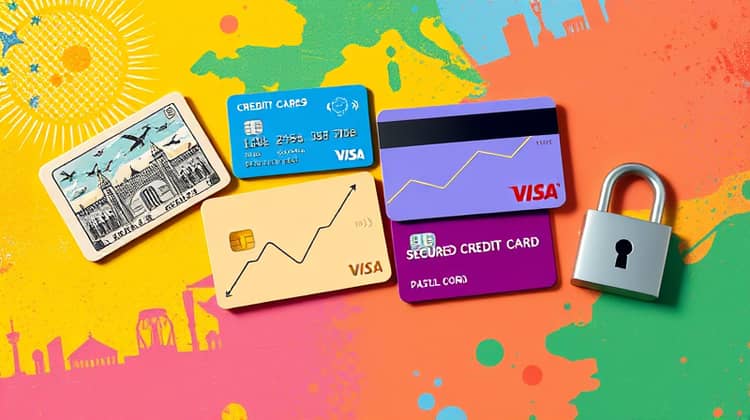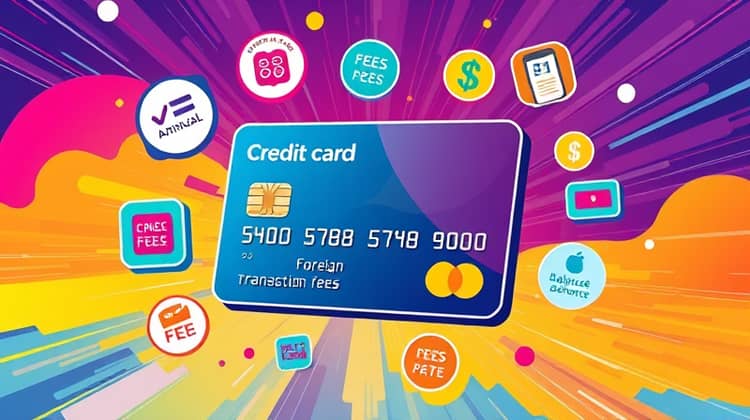When it comes to choosing a credit card, the sheer number of options available can be overwhelming. Each card offers unique features, rewards, and fees, which makes it essential to approach the decision-making process carefully. Understanding your own financial needs and preferences will significantly simplify this task and ensure you select the best card for your lifestyle.
This guide will help you navigate through various credit card offers, emphasizing critical factors such as financial assessment, types of cards available, key features comparison, fees, and more. By the end of this article, you will have a comprehensive understanding of how to make an informed choice when applying for a credit card.
Assess Your Financial Situation

Before diving into the details of different credit cards, it’s crucial to assess your financial situation. Begin by reviewing your current budget, monthly expenses, and income levels. Understand how you plan to use the credit card – whether it's for everyday spending, travel, or building credit history.
Consider your credit score as well. This score will not only influence the types of credit cards you qualify for but also the interest rates and rewards programs available to you. A higher credit score could unlock premium cards with better terms and rewards.
Finally, think about any upcoming financial obligations. If you anticipate making large purchases or dealing with unforeseen expenses, you’ll want a credit card that aligns with those needs.
Types of Credit Cards

Understanding the different types of credit cards available can help you narrow down your choices. There are several categories, including rewards cards, cash back cards, low-interest cards, and secured credit cards. Each serves a distinct purpose and caters to different spending patterns.
For instance, rewards cards are ideal for individuals who frequently travel or spend a lot in specific categories, allowing them to earn points or miles. On the other hand, cash back cards reward users with a percentage of money back on their purchases, making them very appealing for everyday expenses.
Compare the Key Features

Once you know the types of cards that fit your needs, it’s time to compare their key features. This step is vital to finding the card that maximizes your benefits and minimizes your costs.
- Annual fees
- Rewards programs
- Introductory offers
- Interest rates
- Credit limits
Understanding these features will give you a clearer picture of what each card can offer you and help you align these benefits with your personal financial goals.
Understanding Fees and Interest Rates

Analyzing the fees and interest rates associated with credit cards is essential to avoid any surprises down the road.
- Annual fees
- Foreign transaction fees
- Late payment fees
- Balance transfer fees
- Cash advance fees
Evaluate the Application Process

The application process for credit cards can vary significantly between issuers.
- Online applications
- In-person applications
- Approval times
- Required documentation
- Pre-qualification options
Consider the Terms and Conditions

Every credit card comes with its own set of terms and conditions that can significantly impact your overall experience.
- Grace period
- Rewards expiration
- Payment due dates
- Penalty rates
- Credit limit adjustments
Being clear about these terms can save you from unexpected charges and ensure that the credit card remains a helpful financial tool rather than a burden.
Make a Decision and Apply

After thorough research and comparison, it’s time to make a decision and apply for the credit card that best suits your needs.
Conclusion

Choosing the right credit card can greatly affect your financial flexibility and reward opportunities. By thoughtfully assessing your situation, understanding the types of cards available, and comparing key features, you can make an informed decision that aligns with your financial goals.
Remember that your credit card should complement your overall financial plan and not interfere with it. Take your time in making this choice, and don't hesitate to ask questions or seek advice from financial experts if needed.














